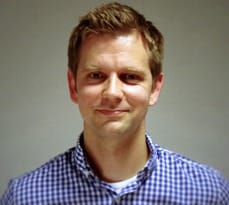

Trybe began life as a start-up in the autumn of 2015, when founder and CEO, Daniel Michalczyk, immediately targeted what he describes as ‘superquick’ growth: “We wanted a company that is addicted to speed and accelerated execution.” As a result of that focus on outpacing the competition, Trybe already has one of the biggest consumer panels in the world. “We launch a community in a new country every two weeks,” says Daniel. It combines product sampling with big data analytics and runs consumer panels around the world, helping global brands and household names of the likes of Wrigley, Coca-Cola, Nestle, Colgate, Procter & Gamble and Haliborange get a better understanding of their consumers.
Cheaper, faster, bigger
Trybe’s innovation is to automate the labour-intensive consumer testing process, pushing the price of consumer insights and market intelligence down from eye watering to affordable. 90 per cent of all product launches fail within a year because companies – and in particular small and start-up companies – fail to carry out adequate consumer testing and research.
With smart data analytics tools, 14 employees, and offices in Norway and New York, Trybe is democratising access to that critical consumer intelligence: “Trybe is extremely disruptive. We’re already one tenth of the price of conventional consumer insights and most of the time we’re five times faster”, explains Daniel. “Our ideal scenario is where the price per project is low and we make our money on the volume of testing we do for clients. In 2016 alone our community answered more than 11 million questions.”
Low risk route to entrepreneurship
Daniel’s move into entrepreneurship began as a way to inject some more interest into his day job as senior marketing manager with a global consumer brand similar to those he now counts as clients. “I was living an international life, first managing territories across Europe and then Latin America, based in Mexico City. But I always had side projects picking up on my interest in coding and technology.”
Daniel was looking for ways to optimise those outside interests when he came across the Postgraduate Diploma in Entrepreneurship (PGDE): “I wanted a way out of the big company culture, but with a two-year-old son, I hesitated to just quit my job. The Cambridge Judge Business School (CJBS) diploma offered a low risk option and a great brand. When I got my place, my company gave me time off because they knew the entrepreneurial challenge would give me an additional edge in my day job.”
With several years of international corporate experience under his belt, and considerable anxiety about the impact on his young family if he left his corporate role, Daniel found the PGDE mentors offered just the support he was looking for: “My thinking was all over the place, but discussions during the programme put my fears in context. I hadn’t had great experiences with mentors previously, but at CJBS the mentors were impartial and their contribution was extremely valuable to my personal development.”
The PGDE mixes online learning with three residential sessions in Cambridge. “Those weeks were always perfectly timed, it seemed to me, coming just when you were at a low point,” Daniel remembers. “I’d come to Cambridge and leave after a week insanely determined to bring a startup to life. In fact, two weeks after the programme ended, I did resign my secure job in that giant multinational.”
From corporate innovator to entrepreneur
At that point, however, Daniel opted to sample the entrepreneurial life as an employee and took a role in a startup that’s since become a by-word for disruption – Uber.
It was while he was with Uber, commuting between Berlin and his family back in Oslo that an assignment he’d completed on the PGDE provided Daniel with his light bulb moment: “During the programme we had to write a letter to ourselves on the understanding that it would be posted back to us some time after we had left. In that letter I set down all the personal goals I had talked through with my mentors and peers on the programme. And in particular, I reminded myself of the answers my mentors had helped me find to the question, what’s the worst that could happen if I quit my day job?”
Daniel was working at Uber and had completely forgotten about the assignment, when, two years after he’d written it, that letter popped through his letterbox. “Reading what I’d written to myself was a huge moment. I realised I was ready to run my own company.”
Six months after leaving Uber, Daniel was CEO of an intensely disruptive startup. Now, with its second birthday fast approaching, Trybe plans to double the number of employees to 30. “We’re confident Trybe will grow immensely over the next few years. It’s a high-risk venture, but I’m loving it,” concludes Daniel. His fears about the impact on his family of the entrepreneurial life are long gone: “My wife says that although I spend more time working and thinking about work, I’m much happier when I’m home. And though we now have two children to think about, I’ve finally got a day job I look forward to every single day!”

